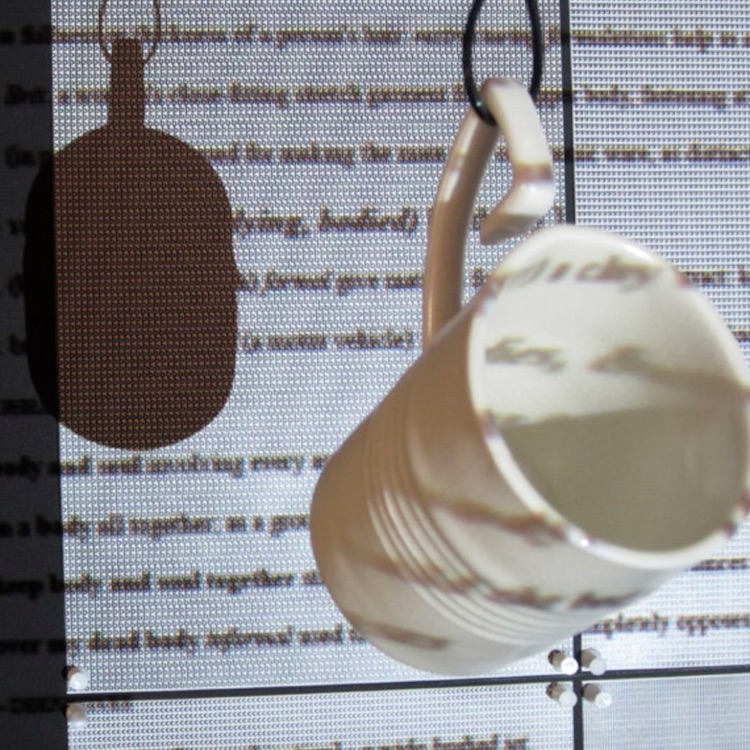Many thanks to Conor J. R. Wilson for allowing Cfile to publish his impressive and fresh PhD thesis ‘Writing_Making: Object as Body, Language, and Material’ in cfile.campus. What an honor it is to make such a rich body of scholarship available to our readers (for FREE)! Explore the book!

In the nearly 400-pager, Wilson attempts to document his creative process through and through, and its kind of beautiful. As humans, we encounter a multitude of visual stimuli, data, and experience to be digested everyday; as artists, this experience is regurgitated into our artworks. By emphasizing process and methodology, Wilson returns the humanity to the made object, recalls the naiveté of experimentation, and the intuitive nature of making.
In the words of Garth Clark:
Conor Wilson is emerging as a much needed thought-leader for the field. His doctoral thesis is wide-ranging, non-linear and leaves the medium open and raw, twitching like an exposed nerve. Its not an easy document but enjoy the struggle, meant to be read in parts. Is this what theses used to be like before they all became smoothly digested MS hoping for book publication and fame?
Wilson includes his own poetry––poetic responses to research findings and encounters with the material. He includes sales receipts from the purchase of a Kenneth Goldsmith book, images of works in progress, unglazed, unfired. He documents his experiments in a journal like fashion. He includes bits of research that inform his art practice, scanned pages from books like ‘Bend Sinister’ by Vladamir Nabokov, email correspondence wherein he discusses his fears and weaknesses as a ceramist: throwing and glazing.
While it may sound scattered and scrapbook-y, it isn’t. He maintains academic integrity, while producing a highly entertaining and accessible document. He makes research and writing, look kind of… hmm… fun and romantic!

He asks some really great questions:
Can writing be brought to making to generate new new approaches to craft production?
How might writing in response to making, or objects, be reintroduced into a making process as a form of feedback?
Can writing_making methods generate new approaches to writing about making and materials?
How might a combination of production, documentation and reflection be displayed as an artwork/research?
Can making be seen as a means for contacting the ‘strange stranger’?
Suddenly the action of writing is not just beneficial, but necessary to both the makers’ and the audiences’ experience of the artworks. The making and the writing radio back and forth from different islands. On occasion, his chunks of writing take the shape of vessels on the page.
He emphasizes much of existing craft writing is brimming with theory, which is absolutely necessary, but neglects the process/objecthood––the action of making, thus not engaging the makers themselves. This is quite a shame, when the writing doesn’t reach the thing it is writing about, then something must be wrong. This may also be the result of makers themselves not chronicling their own work….

Wilson’s thought process runs counter to many conceptions of craft skill process, and outcome. It doesn’t feel as if he is challenging conceptions for the sake of rebellion, but rather because he desires a wider, more nuanced understanding of the artist/maker. Ceramics often is about the end product, the facture of the end product, judged by a context that can be defined by the expertise and mastery of the maker. But in Wilson’s own work, he hopes for the process to be honest and visible. He poetically trusts the process and accepts uncertainty. As a result, we may see two of his works side by side and never realize they are of the same artist, and this is not meant as criticism.
Particularly compelling is how Wilson gives himself permission to be transparent. He tries a completely unfamiliar method of making, allowing the technical risk itself to be a component of the artworks; even travel and schedule constraints are acknowledged and accepted as influencers of the final works, i.e. rushing to get something done. Throughout the thesis, in poetry and email correspondence, he is transparent about his fears and weaknesses, something we are encouraged against professionally or publicly.

“So, how might the object itself become a philosophy? Philosophy demands words, as does theory, as does research, even artistic research. We have seen that a lack of critical writing in the crafts has been linked with a lack of practitioner writing. But how do practitioners write about their own work and take that experience into writing about the work of others? What might “the right ordinary language” be, and where might we find it? How might we develop writing voices that expand the discipline?”

Conor Wilson, Experiment 11, (2011)
Spend some time with Conor Wilson’s PhD thesis Writing_Making: Object as Body, Language, and Material in the newly public cfile.campus.
All of the images in this article are courtesy of Conor J. R. Wilson, taken directly from his PhD thesis.

Add your valued opinion to this post.